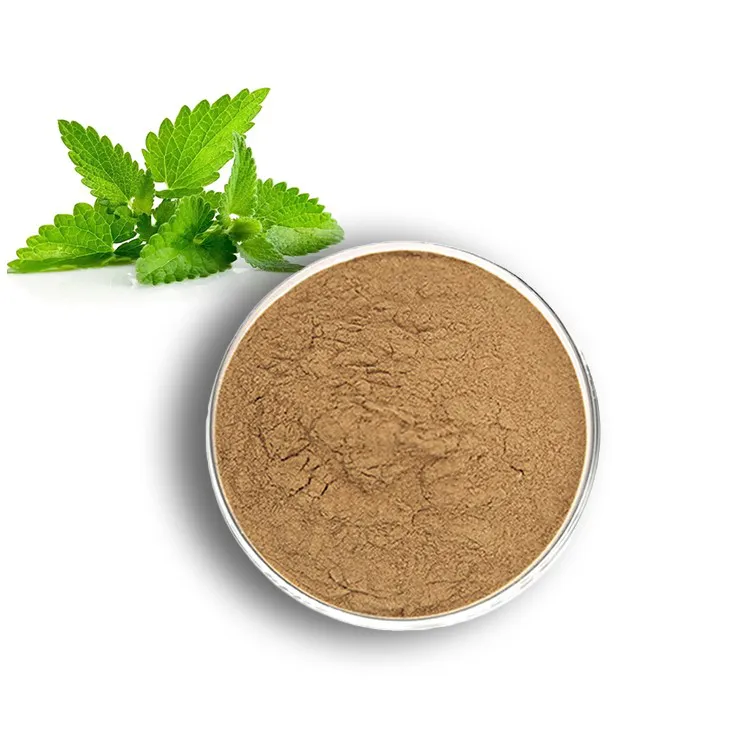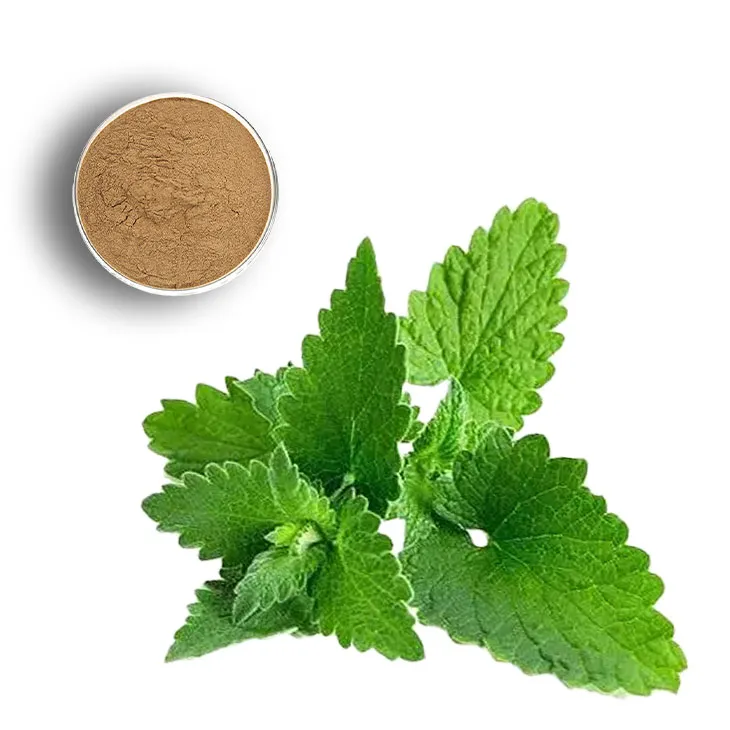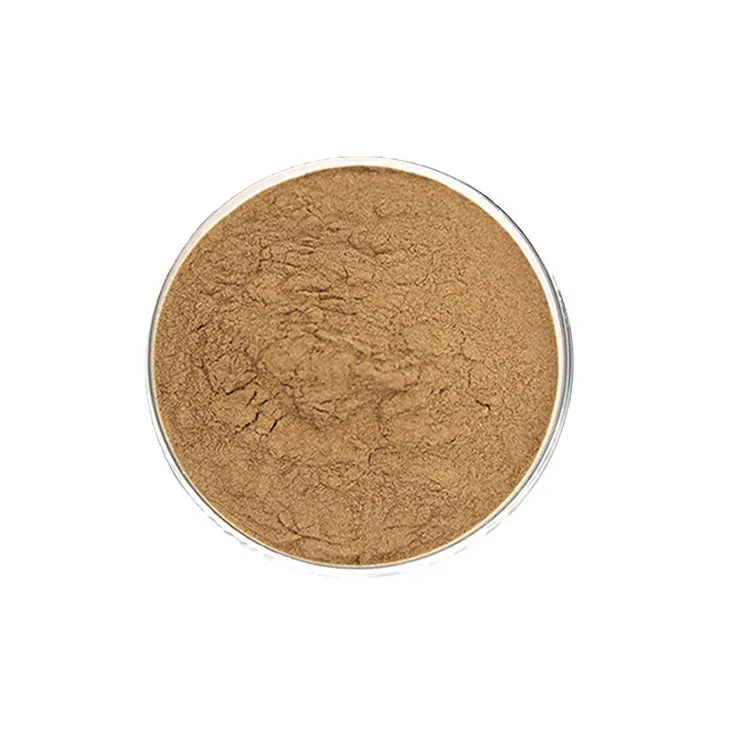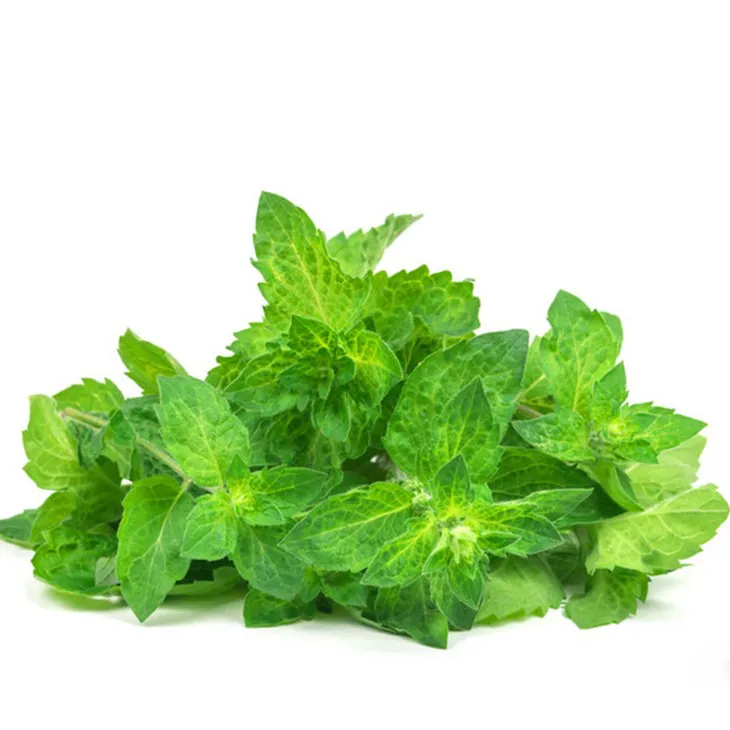- 0086-571-85302990
- sales@greenskybio.com
Application of Lemon Balm Extract in Skin Care.
2024-11-11

1. Introduction to Lemon Balm
Lemon balm, scientifically known as Melissa officinalis, is a herbaceous plant that has been used for centuries for various purposes. It is native to the Mediterranean region but is now cultivated in many parts of the world. The plant has a pleasant lemon - scented aroma, which is one of the reasons for its popularity in different applications, including skin care.

2. Chemical Composition of Lemon Balm Extract
Lemon Balm Extract contains a rich array of chemical compounds that contribute to its beneficial properties in skin care. One of the key components is rosmarinic acid. Rosmarinic acid is a phenolic compound that has strong antioxidant properties. It helps in scavenging free radicals in the skin, which are often responsible for premature skin aging, such as the formation of wrinkles and fine lines.
Another important component is eugenol. Eugenol has antibacterial and antifungal properties. It can combat various microorganisms that may cause skin infections, including acne - causing bacteria. Additionally, Lemon Balm Extract also contains flavonoids. These flavonoids play a role in enhancing the skin's elasticity and promoting a healthy complexion.

3. Skin Rejuvenation and Collagen Production
Collagen is a crucial protein in the skin that provides structure and firmness. As we age, the production of collagen in the skin decreases, leading to sagging skin and the appearance of wrinkles. Lemon balm extract has been found to stimulate collagen production in the skin.
The mechanism behind this lies in its ability to activate certain cells in the skin called fibroblasts. Fibroblasts are responsible for synthesizing collagen. When lemon balm extract is applied to the skin, it sends signals to these fibroblasts, prompting them to produce more collagen. This results in a more youthful and firm appearance of the skin. For example, in a recent study, it was observed that after regular application of a skin cream containing lemon balm extract for a period of several weeks, participants showed an improvement in skin elasticity, which is closely related to collagen levels in the skin.

4. Antibacterial Properties and Acne Prevention
Acne is a common skin condition that affects a large number of people, especially adolescents. It is caused by the overgrowth of Propionibacterium acnes, a type of bacteria that thrives in the sebaceous glands of the skin.
Lemon balm extract's antibacterial properties come into play here. The eugenol and other antibacterial compounds in the extract can target and kill P. acnes bacteria. By reducing the population of these bacteria on the skin, lemon balm extract helps in preventing the formation of acne. Moreover, it can also reduce the inflammation associated with acne. When acne occurs, the skin becomes inflamed, leading to redness and swelling. The anti - inflammatory properties of lemon balm extract can soothe the inflamed skin, promoting a faster healing process.
- It inhibits the growth of bacteria at the root level.
- Reduces the production of sebum, which provides a breeding ground for bacteria.
- Helps in unclogging pores, which are often blocked by dead skin cells and sebum, preventing the formation of acne lesions.

5. Calming Effect on the Skin
The skin can often become irritated due to various factors such as environmental pollutants, harsh chemicals in skincare products, or even stress. Lemon balm extract has a calming effect on the skin.
It contains compounds that can interact with the nerve endings in the skin, reducing the sensation of irritation. This is beneficial for people with sensitive skin types. For example, those who experience redness or itching after using certain skincare products may find relief by using products containing lemon balm extract. Additionally, the calming effect also contributes to a more radiant appearance of the skin. When the skin is calm and not irritated, it looks healthier and more glowing.
6. Incorporating Lemon Balm Extract into Skincare Routines
6.1. Cleansers
Lemon balm extract can be added to facial cleansers. In a cleanser, it can help in removing dirt, oil, and impurities from the skin while also providing its antibacterial and calming benefits. When using a lemon balm - infused cleanser, it is important to massage it gently onto the skin in circular motions for about a minute and then rinse thoroughly with lukewarm water.
6.2. Toners
Toners containing lemon balm extract can help in balancing the skin's pH level. After cleansing the face, applying a lemon balm toner can prepare the skin for the next steps in the skincare routine. It can also tighten pores and provide a refreshing feeling. To use, soak a cotton pad with the toner and gently swipe it across the face and neck.
6.3. Moisturizers
When incorporated into moisturizers, lemon balm extract can provide long - lasting hydration to the skin while also promoting collagen production and preventing acne. Moisturizers with lemon balm extract are suitable for all skin types, especially those with dry or combination skin. Apply the moisturizer evenly on the face and neck, and gently massage it in until fully absorbed.
6.4. Masks
Lemon balm extract can be a key ingredient in face masks. A lemon balm mask can be used once or twice a week for a more intensive treatment. It can deeply hydrate the skin, soothe irritation, and improve the overall complexion. To make a simple lemon balm mask at home, mix lemon balm extract with other natural ingredients such as honey and yogurt, apply it to the face, leave it on for 15 - 20 minutes, and then rinse off.
7. Precautions and Considerations
While lemon balm extract has many benefits for the skin, there are also some precautions to be taken. First, some people may be allergic to lemon balm. It is recommended to do a patch test before using any product containing lemon balm extract on a large area of the skin. Apply a small amount of the product on the inside of the wrist or behind the ear and wait for 24 hours to see if there is any allergic reaction, such as redness, itching, or swelling.
Secondly, if using products with lemon balm extract in combination with other active skincare ingredients, it is important to ensure that the ingredients are compatible. For example, some acids used in skincare, such as alpha - hydroxy acids, may interact with lemon balm extract in ways that could potentially cause skin irritation. In such cases, it is advisable to consult a dermatologist or skincare professional.
8. Conclusion
Lemon balm extract has significant potential in skin care. Its ability to promote skin rejuvenation through collagen production, prevent acne with its antibacterial properties, and have a calming effect on the skin makes it a valuable ingredient in various skincare products. However, proper precautions should be taken to ensure its safe and effective use. With further research and development, lemon balm extract is likely to play an even more important role in the field of skin care in the future.
FAQ:
Q1: How does lemon balm extract promote collagen production?
Lemon balm extract contains certain bioactive compounds that can stimulate the fibroblasts in the skin. Fibroblasts are the cells responsible for producing collagen. These compounds interact with the fibroblasts, triggering the production process of collagen, which is essential for skin elasticity and firmness.
Q2: Can lemon balm extract be used for all skin types in preventing acne?
Generally, lemon balm extract can be beneficial for most skin types in preventing acne. However, those with extremely sensitive skin may need to test it on a small area first. Its antibacterial properties help to combat the bacteria that cause acne, but for sensitive skin, there could be a potential for mild irritation. For normal, oily, and combination skin types, it can be quite effective in preventing acne due to its antibacterial and skin - balancing effects.
Q3: What is the mechanism behind the calming effect of lemon balm extract on the skin?
Lemon balm extract has anti - inflammatory properties. It can reduce the production of pro - inflammatory cytokines in the skin. These cytokines are molecules that play a role in the inflammatory response. By reducing their production, the extract helps to soothe the skin, reducing redness, irritation, and discomfort, thus achieving a calming effect.
Q4: How can lemon balm extract contribute to a healthy and radiant appearance?
As mentioned before, it promotes collagen production which keeps the skin firm and elastic. The antibacterial properties prevent skin infections that could otherwise lead to blemishes and dullness. The calming effect also helps the skin to look more even - toned and healthy. All these factors combined contribute to a healthy and radiant appearance of the skin.
Q5: Are there any side effects of using lemon balm extract in skin care?
While lemon balm extract is generally safe for use in skin care, some people may experience mild side effects. In rare cases, it can cause skin irritation or allergic reactions, especially in those with hypersensitive skin. It is always advisable to do a patch test before using any product containing lemon balm extract on a large area of the skin.
Related literature
- The Role of Botanical Extracts in Skin Health: A Focus on Lemon Balm"
- "Lemon Balm Extract: Skin - Care Benefits and Scientific Evidence"
- "Skin Rejuvenation with Natural Extracts: Lemon Balm as a Promising Ingredient"
- ▶ Hesperidin
- ▶ Citrus Bioflavonoids
- ▶ Plant Extract
- ▶ lycopene
- ▶ Diosmin
- ▶ Grape seed extract
- ▶ Sea buckthorn Juice Powder
- ▶ Fruit Juice Powder
- ▶ Hops Extract
- ▶ Artichoke Extract
- ▶ Mushroom extract
- ▶ Astaxanthin
- ▶ Green Tea Extract
- ▶ Curcumin
- ▶ Horse Chestnut Extract
- ▶ Other Product
- ▶ Boswellia Serrata Extract
- ▶ Resveratrol
- ▶ Marigold Extract
- ▶ Grape Leaf Extract
- ▶ New Product
- ▶ Aminolevulinic acid
- ▶ Cranberry Extract
- ▶ Red Yeast Rice
- ▶ Red Wine Extract
-
Pine bark Extract Powder
2024-11-11
-
Alfalfa Meal
2024-11-11
-
Dan Shen Root Extract/Salvia Root Extract
2024-11-11
-
Withania Somnifera Extract
2024-11-11
-
Tinospora cordifolia extract
2024-11-11
-
Hops Extract
2024-11-11
-
Pomegranate Extract
2024-11-11
-
Citrus bioflavonoids
2024-11-11
-
Ivy Extract
2024-11-11
-
Medicinal Marshmallow Extract
2024-11-11





















